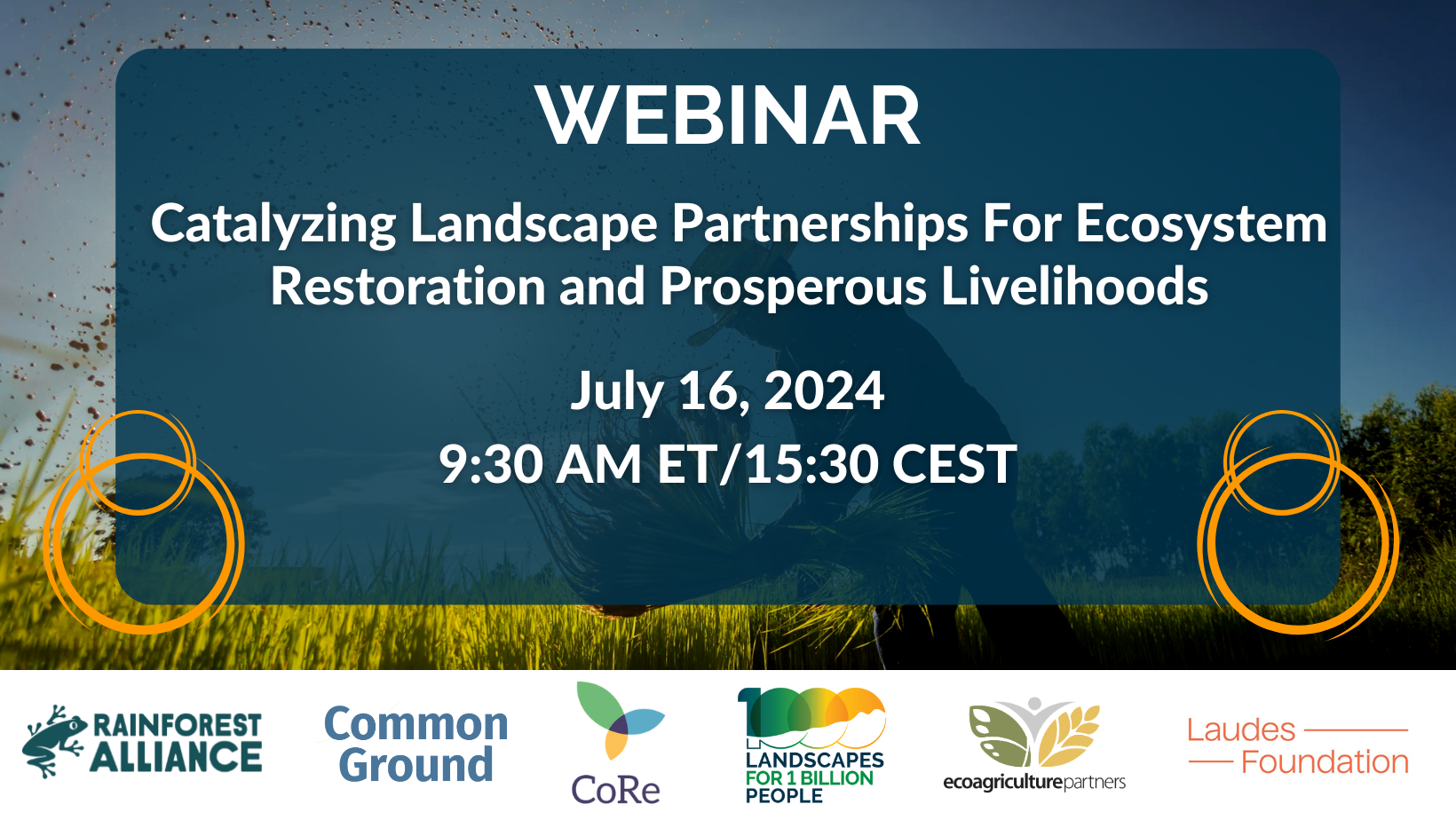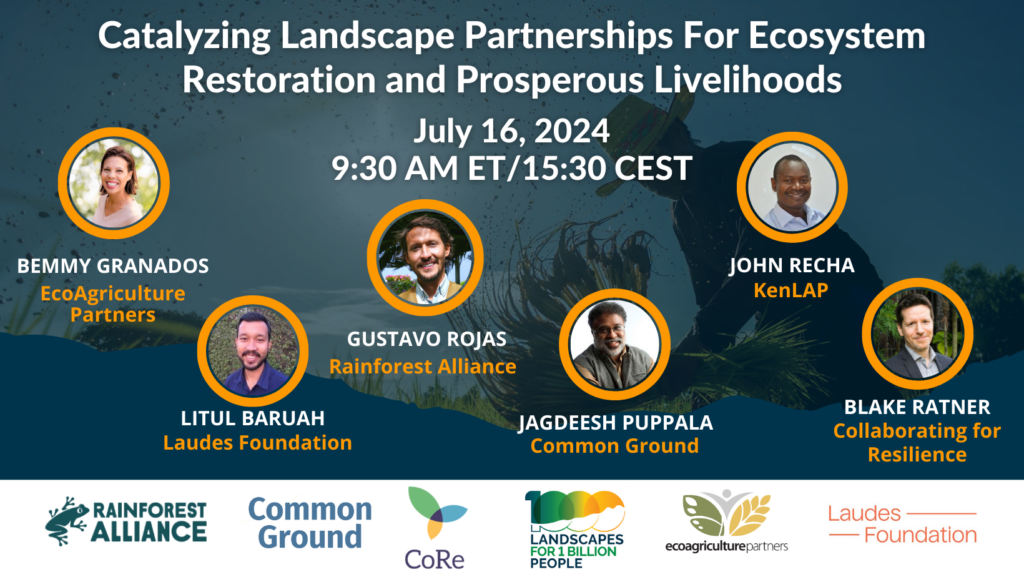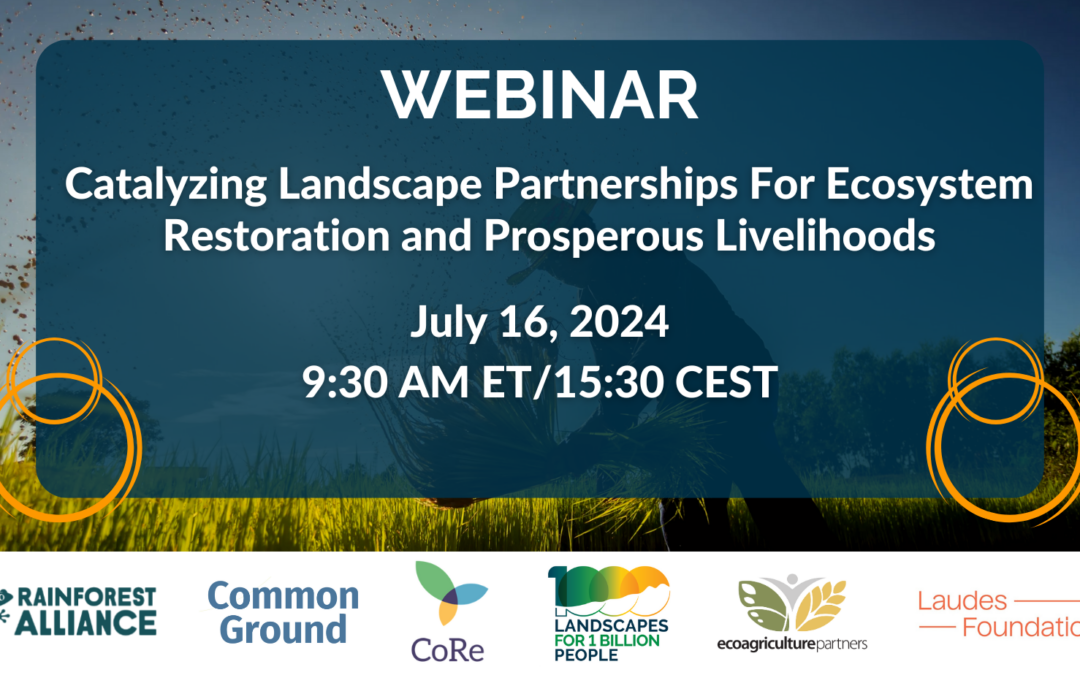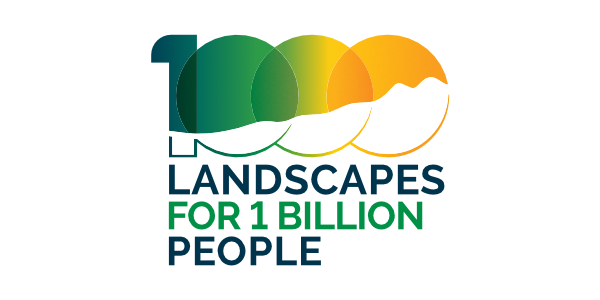
Catalyzing Landscape Partnerships For Ecosystem Restoration and Prosperous Livelihoods
Integrated landscape management (ILM) offers solutions to a broad spectrum of global challenges, from climate change and biodiversity loss, to land degradation and food insecurity. Implementing ILM can strengthen agriculture systems, improve livelihoods, and reduce poverty, especially for rural populations. But the true potential for ILM to lead to long-term solutions for our planet lies with landscape partnerships.
Join us on Thursday, July 16, at 9:30 AM ET/15:30 CEST for our official side event at the United Nations High-Level Political Forum (HLPF). We’ll explore the power of these partnerships and the necessary ingredients for their success.
Panelists will share real-world insights from across the 1000L continuum, with deep dives from India’s Common Ground initiative, the Kenya Landscape Actors Platform, the CGIAR climate resilience initiative in Guatemala, and more.
This virtual panel is an official side event of the UN HLPF. This year’s theme is Reinforcing the 2030 Agenda and eradicating poverty in times of multiple crises: the effective delivery of sustainable, resilient and innovative solutions.

About The Panelists:
Jagdeesh is leading the Common Ground initiative, as CEO of Living Landscapes and promoting systems leadership for environmental governance and resilient rural livelihoods. A practitioner, his entire professional life has been centered around furthering judicious management of natural resources, with community institutions playing a central role. Recognized as an international leader in advancing conservation and restoration of the commons for rural livelihoods, he is particularly interested in the application of ‘systems thinking’ at the interface of ecology, society, and economy to address the interrelated issues of poverty and environmental degradation. Jagdeesh is the recipient of the Skoll Award for Social Entrepreneurship (2015). He is a Rainer Arnold Conservation Fellow (2017) and Senior Ashoka fellow (2022). A graduate in Agricultural Sciences, Jagdeesh completed his post-graduate training in Rural Management at the Institute of Rural Management, India, followed by a post-graduate degree in Forestry for Rural Development from the International Institute for Aerospace Survey and Earth Sciences, Netherlands.
John Recha
Dr. Recha is a land management and climate change scientist specializing in East Africa. In 2004, he founded the Environmental Resources Management Center for Sustainable Development (now called Sustainable Agriculture and Natural Resource Management – Africa, or SANREM-Africa) and now serves on its board. Since 2012, he has been involved in SANREM-Africa’s collaboration with EcoAgriculture Partners. He currently serves as a researcher in the CGIAR Research Program on Climate Change, Agriculture and Food Security (CCAFS) in Kenya.
While studying for his Ph.D. at Cornell University, Recha served as a research fellow at the World Agroforestry Centre (ICRAF) from 2007-2011. Prior to that, he worked as a research technician with the World Agroforestry Centre, coordinating soil fertility management research in western Kenya. He has worked with environmental non-governmental organizations, promoting climate-smart agriculture to improve rural livelihoods, and has written articles on sustainable land management and hydrology in the tropics. He has a master’s degree in soil science and land management (Sokoine University of Agriculture, Tanzania) and a bachelor’s degree in Agriculture (University of Nairobi, Kenya).
Litul Baruah
Litul is a senior program manager at Laudes Foundation, leading the foundation’s global program on regenerative agriculture production landscapes. His work focuses on convening stakeholders at a global level to influence businesses and investors to address climate change and inequality by investing in and sourcing from regenerative agriculture landscapes. Litul serves as a member of the Better Cotton Growth and Innovation Fund’s field impact and innovation committee.
Previously, Litul worked at KPMG in their development sector consulting practice, Kantar Public and IRADE- a think tank working on energy, agriculture, and climate change policy issues. Litul holds a master’s degree in economics from Gokhale Institute of Politics and Economics and a bachelor’s degree in economics from Ramjas College, University of Delhi.
About The Facilitator:
Bemmy Granados
Bemmy Granados (formerly “Maharramli”) is the director of innovation in landscape management, where she leads efforts to advance integrated landscape management to promote sustainable land-use practices. She collaboratively develops capacity-building tools, training, and learning modules, as well as relationships, to accelerate and boost the good work of landscape partners and leaders worldwide. She facilitates a program of action research–conceiving and implementing transformative programs that promote multifunctional landscapes characterized by sustainable agriculture, biodiversity conservation, and climate resilience.
Previously, Bemmy played a significant role at the University of California, Los Angeles’s Center for Community Engagement. There, she provided leadership in advancing community-engaged research, teaching, and learning institutionally across campus, including overseeing the center’s environmental and international development partnerships. Additionally, Bemmy was the manager of the food security initiative at Conservation International in Washington, D.C., where she led the collaborative development of the institution’s food security strategy.
About The Moderator:
Blake Ratner
Blake is the founder and executive director of Collaborating for Resilience and a member of the scientific and technical advisory panel of the Global Environment Facility, where he provides guidance on the design of GEF strategy in the areas of international waters, environmental security, and resilience. He is the immediate past director general of WorldFish, which works to strengthen food and nutrition security for millions of small-scale producers, processors, traders, and poor consumers in South and Southeast Asia, Africa, and the Pacific. An environmental sociologist with a Ph.D. from Cornell University, Blake’s research addresses social equity, ethics, resource conflict, and the role of multi-stakeholder dialogue in environmental governance. Early in his career, he worked with social entrepreneurs in Guatemala and the Palestinian Occupied Territories and subsequently held posts with the World Resources Institute and the World Bank. Blake was based for 13 years cumulatively in Thailand, Cambodia, and Malaysia, in addition to leading program implementation in China, India, Laos, Myanmar, Uganda, Vietnam, and Zambia.


